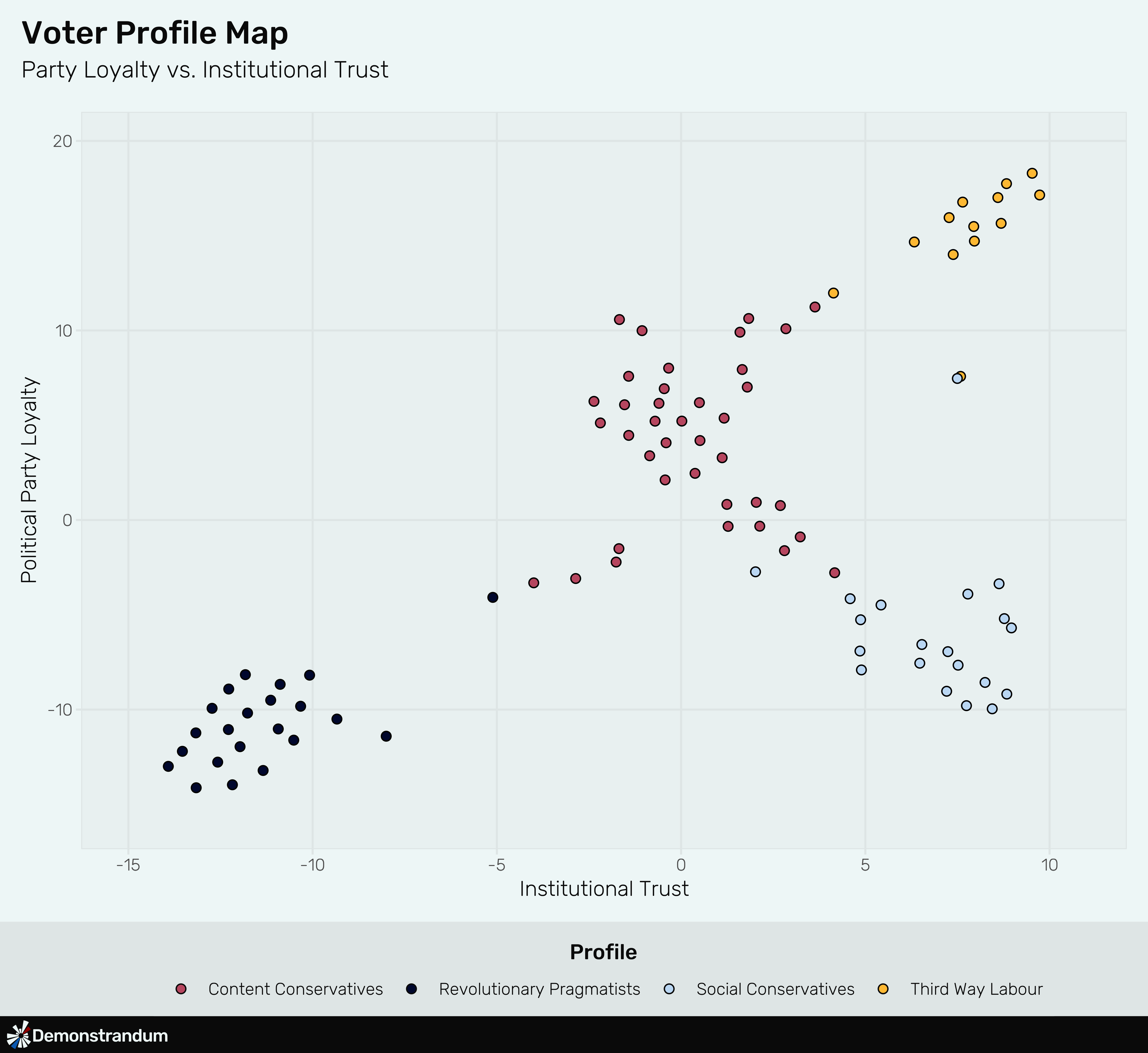The UK's First AI Powered Political Manifesto
How Demonstrandum helped a political campaign build a democratic manifesto with AI
3 Minute Read

The explosion of interest around AI in 2023 has made it so everyone is aware, to some extent, of the power that AI has to democratise knowledge. With Andrew Gray's by-election campaign, we were excited at Demonstrandum to help try and democratise more of the democratic process.

This article will discuss some of the concerns we have seen raised, and also some of the ways in which we can see this technology being used going forward.
Overview
Let's start with a quick overview of the findings. We took 589 comments submitted by 275 constituents using the Open Source tool Pol.is and constructed 4 voter personas based on their voting patterns and the topics that mattered to each group. It was crucial that these personas be as different as possible, so we could better identify the areas of agreement.
The visualisation below shows that we were able to identify 4 groups that were fairly distinct, and definitely had their own opinions and issues that they want addressed.

Ethical Use of AI
AI Bias
One common concern that arises when discussing this initiative is AI Bias. AI Bias refers to the systematic errors or prejudices in AI systems that can occur due to biased training data or algorithm design. When dealing with sensitive issues such as politics, it is critical to minimize, if not completely eliminate, these biases.
Key to managing this is the fact that all the data we analyzed was anonymized, guaranteeing honest and open responses. This ensured that racial or gender biases did not enter into our modeling and the insights that informed the subsequent manifesto creation.
AI-Powered, Human-Controlled
Let's address a misconception about this campaign. Generative AI was not used to create the policies themselves; that was done by Andrew and his team using the insights we produced. Generative AI was primarily employed to identify comments that could be grouped together. To ensure the significance and robustness of the analysis, we removed low-voting users or comments with a low number of votes. Generative AI helped identify similarities in topic and sentiment among the comments we removed, enabling us to combine them for more comprehensive data retention.
Insights that Inform Action
After conducting the analysis, we collaborated with Andrew's team to identify the statements that voters found important and construct policies that addressed their concerns. It was crucial to communicate both the policy and the reasons behind its selection within the manifesto. To measure agreement across our voter personas, we defined a metric called "consensus," which measured the proportion of respondents who agreed. The goal was to identify areas of agreement among these distinct, and politically opposed, personas. The resulting manifesto reflects ideas that resonate with the public while incorporating Andrew's position on how to address them, creating a true synergy between constituents and their representatives.
Looking Forward
Demonstrandum's role in this campaign was truly exciting for us, as we helped amplify the voice of constituents in Selby and Ainsty through advances in technology. We are particularly enthusiastic about the potential applications of this technology in future elections and any situation where anonymity, honesty, and engagement are crucial. Our methodology enabled the identification and amplification of distinct voices within a sea of comments, allowing decision-makers to act upon them.
If you have any questions, please feel free to reach out to us. We would love to discuss how we can help your business democratize data to increase effectiveness.